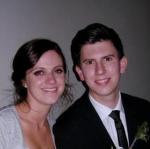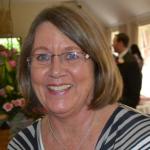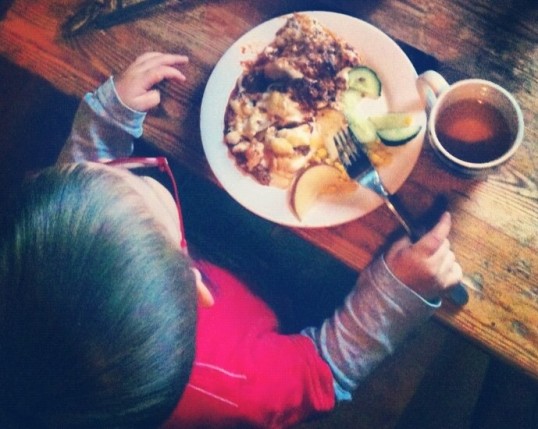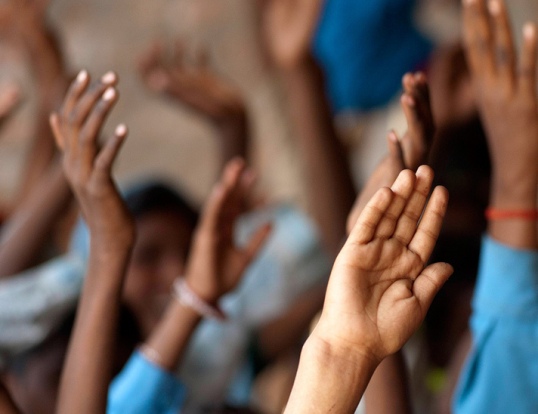3 Leadership Couples on Christmas
What does the festive season mean to you? We asked three couples to share how they’re celebrating.
 Andre and Sabrina Ntambwe – from Common Ground Church Wynberg
Andre and Sabrina Ntambwe – from Common Ground Church Wynberg
How and where are you spending Christmas this year?
We will celebrate this Christmas in Lusaka, Zambia, with my (Andre’s) mom and other siblings. It’s the first Christmas with my mom and other siblings in many years, so it’s going to be very emotional. We celebrate Christmas by exchanging gifts and we invite those without family to join us for lunch because we believe that Christmas is a good opportunity for us to show love to those who desperately need it. Traditionally, I remember as a young boy that my parents would use Christmas as an opportunity for family reunion and reconciliation. Lots of people in my country view Christmas as the opportunity to reconcile with friends or family and show love to those who have no parents.
What does Christmas mean to you?
Whenever we hear the word Christmas what comes to mind is God’s provision, generosity and His unconditional love. Why provision? Because there was no other way for humankind to reconcile with God after the fall if not through the birth of Christ – His life, death and resurrection. Why generosity? Because God gave us Jesus as a free gift that we did not deserve. Why unconditional love? Because we bring nothing to the table but our sins. So for us whenever the word Christmas is mentioned we don’t just see a baby being born, we see God’s generosity and His free gift of salvation.
Do you have anything planned to make this Christmas more meaningful?
Yes! We bought a couple of Give Hope cards from Common Good for our friends in Lusaka. We have also bought gifts for three kids we know who have no parents. We will have lunch with them at my mom’s place and celebrate with them.
Andre and Sabrina serve on the leadership team of Common Ground Church Wynberg. They have two young sons.
 George and Bev Draper – from Common Ground Church Bosch AM
George and Bev Draper – from Common Ground Church Bosch AM
How would you sum up the meaning of Christmas?
The basis on which we approach Christmas is epitomised in Isaiah 9:6 – ‘For to us a child is born, to us a son is given, and the government will be on his shoulders. And he will be called Wonderful Counselor, Mighty God, Everlasting Father, Prince of Peace’. This helps to explain God as we have experienced him as Spirit, Father and Saviour. While as family we may worship in separate communities and in different ways, as Christ-followers we stand agreed on this truth that Christmas is a time for spiritual affirmation and celebration.
Are there any traditions you follow at Christmas time?
We spend Christmas Eve together as a family because we are all involved in church on Christmas day in our various places of worship. We take time to go around the table taking turns to affirm one another. The Christmas season is also a time of a break for us when we can catch up and spend time with friends. We have in the past, and plan to this year, open our home on Christmas day to others who may not have family to eat and hang out with.
George and Bev serve on the leadership team of Common Ground Church Bosch AM. They are both medical doctors.
 Ian and Tammy Teague – from Common Ground Church Bosch PM
Ian and Tammy Teague – from Common Ground Church Bosch PM
What is at the heart of Christmas day for you?
To us, Christmas is a time to celebrate the greatest gift – Jesus coming to the world to save us. This is something we are constantly grateful for but at this time of the year it’s wonderful to celebrate this with our family and community. It’s also a time to reflect on our other blessings like our family and friends, and make an effort to show them how much they mean to us.
How are you planning to spend Christmas this year as newlyweds?
We’ll be spending our first Christmas together in our home in Cape Town and we’ll have Ian’s family staying with us. We love this time of the year and will be doing the usual Christmas activities – putting up our first Christmas tree, baking mince pies and spending time with family and friends. We want to make sure that Christmas becomes a time of reflection, rest and fun in our family.
We’re looking forward to doing some reading together on Christmas Eve. We’ll look at the Scriptures that point towards Jesus’ coming and the story of His arrival. Sometimes we need reminding of how absolutely amazing that night was. We can’t wait for the Christmas morning service at Common Ground Church and our present-opening and Christmas lunch that will follow.
Ian and Tammy serve on the leadership team of Common Ground Bosch PM. They got married earlier this year.
What does Christmas mean to you? Do you have any ideas of how to make it more meaningful?
– – – – – – – – – – – – – – – – – – – – – – – –
 Find out more about our ‘Show Love This Christmas’ campaign for ideas on how you can make a difference this Christmas.
Find out more about our ‘Show Love This Christmas’ campaign for ideas on how you can make a difference this Christmas.






